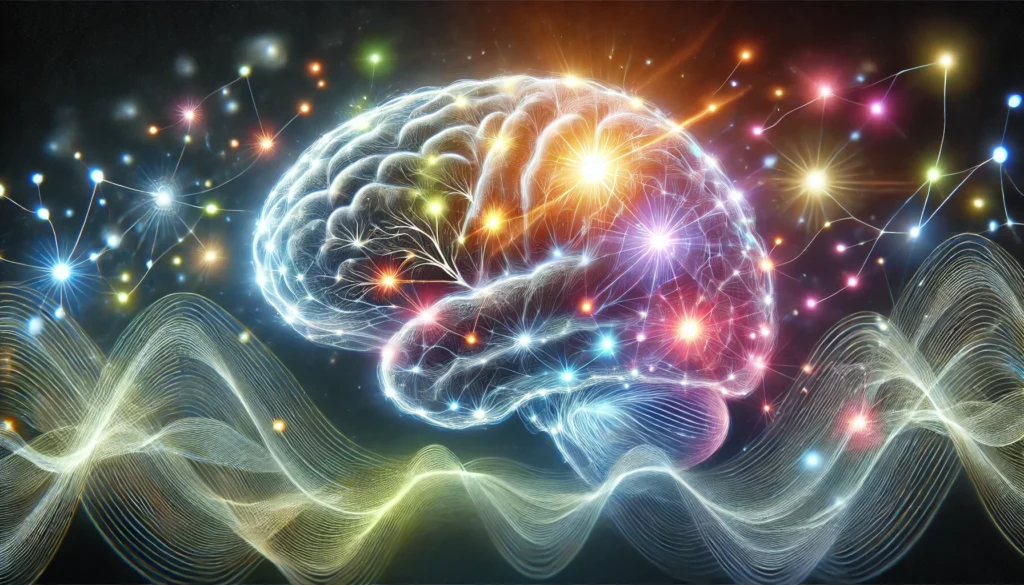Sleep is a universal human experience. Yet, it remains shrouded in mystery and misconception.
One common belief is that sleep is a state of unconsciousness. But is this really the case? Are we truly unconscious when we sleep?
The answer is not as straightforward as you might think. Sleep is a complex physiological process, involving various stages and patterns of brain activity.
In this article, we will delve into the fascinating world of sleep and consciousness. We will debunk myths and present facts, providing a comprehensive understanding of this intriguing topic.
Our journey will take us through the science of sleep stages, the impact of sleep deprivation, and the role of sleep in our overall health. We will also explore practical ways to enhance sleep quality and optimize mental and physical health.
Whether you’re a health and wellness coach, a science journalist, or a biohacker, this article is designed to equip you with accurate, engaging, and practical information.
So, let’s embark on this journey of discovery together. Unconsciousness in sleep: let’s separate the myths from the facts.
You May Also Like: Sleep Hygiene: Key Practices for Health
Understanding Unconsciousness and Sleep
Unconsciousness is often described as a lack of awareness or response to the environment. It can result from several causes, such as injury or medical conditions. In the context of sleep, unconsciousness implies a temporary detachment from conscious awareness.
This state, however, is not absolute. While we are less aware during sleep, the brain remains active. It engages in various processes crucial for health, such as memory consolidation and emotional regulation.
The relationship between sleep and consciousness is intricate. Sleep involves different stages, each with distinct brain activity patterns. These stages fluctuate between lighter and deeper states of sleep, contributing to overall restorative processes.
In lighter stages, for instance, individuals may respond to environmental stimuli. These responses suggest that sleep is not a complete state of unconsciousness. Rather, it is a dynamic process with varying levels of awareness.
To better understand this concept, consider the following key points:
- Sleep involves cycles of diverse stages, not total unconsciousness.
- Brain activity remains vital during all stages of sleep.
- Some reactions to external stimuli occur, particularly in lighter sleep stages.
Debunking the myth of complete unconsciousness during sleep is essential. It fosters a deeper appreciation of how our bodies and minds function when resting. Sleep is a time for crucial biological activities, far beyond mere unconsciousness.
These activities support memory, learning, and even emotional balance. By perceiving sleep as an active process, rather than an inactive one, we encourage better sleep practices. Emphasizing the active roles of sleep can lead to healthier sleep habits and improved well-being.
In summary, while unconsciousness is a part of sleep, it is not all-encompassing. Sleep is a dynamic state full of crucial brain activities that sustain and restore our health.

The Science of Sleep Stages
Sleep progresses in a series of stages. These stages are vital for physical and mental recovery. Understanding them can enlighten how sleep influences consciousness.
The sleep cycle consists of four distinct stages. These stages repeat approximately every 90 minutes throughout the night. Each stage plays a unique role in sleep quality.
Overview of Sleep Stages
- Stage 1 (NREM): The transition phase lasts a few minutes. It serves as the bridge between wakefulness and sleep.
- Stage 2 (NREM): This stage marks the onset of true sleep. Heart rate slows, and body temperature drops.
- Stage 3 (NREM): Also known as deep sleep, this stage is critical for restoration. It promotes growth and repair.
- REM Sleep: A fascinating phase, characterized by rapid eye movements. Brain activity becomes more similar to wakefulness.
REM sleep holds a special role in consciousness. It is the period where dreaming commonly occurs. This stage supports cognitive functions like memory and creativity.
The brain’s activity during sleep differs significantly from wakefulness. In sleep, certain areas associated with logic and decision-making take a backseat. Yet, the brain remains busy, conducting necessary maintenance.
Contrastingly, during wakefulness, there is heightened alertness and responsiveness. The prefrontal cortex, responsible for executive functions, is more active. This distinction highlights how the brain aligns activities based on the state of consciousness.
Sleep is not a uniform state of unconsciousness but a complex symphony of processes. By understanding sleep stages, we can appreciate their significance in overall health. Quality sleep involves a seamless transition through these cycles, allowing for optimal physical and mental function. Knowing these stages can guide strategies for enhancing sleep and consciousness.
Are You Unconscious When You Sleep?
The common belief is that sleep is a state of complete unconsciousness. However, this is not entirely accurate. Sleep involves a dynamic interplay of consciousness levels.
During sleep, the brain remains active. Various regions engage in critical processes. This disproves the idea of total unconsciousness.
Recent research sheds light on sleep’s complexity. Studies show that neurons continue firing in patterns during sleep. This activity supports essential bodily and cognitive functions.
One significant discovery is sleep’s role in memory. Memories form and consolidate while we sleep. The brain processes information, strengthening neural connections.
Moreover, sleep influences learning. It enhances problem-solving skills and promotes creative thinking. This is why good sleep is crucial before tasks requiring high mental effort.
By understanding these functions, we see sleep as more than rest. It is a period of vital activity and engagement. Sleep supports not only physical recovery but cognitive and emotional well-being.
Consciousness during sleep is not absent but transformed. It unfolds in different ways through the sleep stages. Appreciating these nuances helps in realizing the profound impact sleep has.
The Consequences of Sleep Deprivation
Sleep deprivation has far-reaching effects on both mental and physical health. When we lack sleep, our bodies and minds suffer. This results in decreased performance and increased risk of chronic conditions.
Mentally, sleep deprivation can be crippling. It impairs cognitive functions such as attention, alertness, and decision-making. Over time, chronic sleep loss can lead to severe mental health issues like depression and anxiety.
Emotion plays a significant role in how we interact with the world. Without adequate rest, emotional regulation becomes a struggle. Research shows that sleep-deprived individuals experience heightened emotional responses and negative moods more frequently.
From a physical perspective, sleep is crucial for bodily repair. During rest, the body regenerates cells and strengthens the immune system. Persistent lack of sleep increases vulnerability to illnesses, ranging from colds to more serious diseases like heart disease and diabetes.
Understanding sleep cycles highlights why continuous, quality sleep is vital. The body cycles through various stages of sleep multiple times each night. Interruptions can lead to incomplete cycles, detrimentally affecting health and well-being.
In conclusion, the consequences of sleep deprivation are extensive and profound. Recognizing the importance of restorative sleep can prompt lifestyle changes. These help ensure balanced mental health and physical vitality.

Enhancing Sleep Quality: Tips and Techniques
Improving sleep quality is essential for overall health. Various strategies can help achieve better rest. Implementing these techniques can have a significant impact.
Creating a relaxing bedtime routine is key. This could include activities like reading, taking a warm bath, or practicing mindfulness. A consistent schedule helps regulate your body’s clock.
Sleep hygiene involves creating an optimal sleep environment. Keep your bedroom cool, dark, and quiet. Use comfortable bedding and limit exposure to screens before bed.
Here’s a list of tips to enhance sleep quality:
- Establish a consistent sleep schedule.
- Avoid caffeine and heavy meals before bedtime.
- Engage in regular physical activity.
- Consider relaxation techniques like meditation.
Biohacking offers innovative approaches to sleep optimization. Techniques such as light therapy and temperature regulation can improve sleep. These methods are designed to align with natural sleep patterns.
Nootropics, often called “smart drugs,” play a role too. Some are marketed to enhance cognitive function and sleep quality. It’s crucial to research and consult professionals before using these supplements.
Good sleep hygiene practices significantly affect overall health. Quality rest supports mental clarity, physical recovery, and emotional balance. Prioritizing sleep can lead to a healthier, more productive life.
Sleep Disorders and Consciousness
Sleep disorders significantly affect consciousness and well-being. Conditions such as insomnia, sleep apnea, and narcolepsy disturb normal sleep patterns. This disruption can lead to daytime drowsiness and cognitive impairments.
Insomnia can cause difficulty falling or staying asleep. It often results in poor mood and reduced mental clarity. Chronic insomnia may increase the risk of mental health issues, like depression.
Sleep apnea is characterized by interrupted breathing during sleep. This disorder leads to fragmented sleep and decreased oxygen levels. Lack of restorative sleep can impair both memory and attention.
The relationship between sleep and immune function is well-documented. Adequate sleep is vital for disease prevention. During sleep, the immune system releases cytokines, which are crucial for fighting infections and inflammation.
Sleep disorders can weaken the immune response, making individuals susceptible to illnesses. Sleep deprivation can also lead to chronic inflammation. This may contribute to diseases like diabetes, cardiovascular problems, and obesity.
Addressing sleep disorders is essential for maintaining consciousness and overall health. Treatments range from lifestyle changes to medical interventions. Effective management can significantly enhance one’s quality of life and well-being.
The Future of Sleep Research and Its Implications
Sleep research is advancing rapidly, promising significant impacts on health and wellness. As we delve deeper into understanding sleep, potential treatments and interventions continue to unfold. These innovations hold the key to enhancing our mental and physical health through improved sleep quality.
The future of sleep technology raises intriguing ethical considerations. Devices that modulate sleep patterns could be transformative. However, they also pose questions about privacy, long-term safety, and dependency risks. Balancing innovation with ethical responsibility will be crucial as these technologies evolve.
Personalized sleep interventions represent a groundbreaking frontier in sleep science. With advancements in genetic research and big data, customizing sleep therapies to individual needs becomes feasible. Tailored interventions could address specific sleep disorders more effectively and optimize sleep quality for each person.
Integration of personalized approaches in health practices shows immense promise. Individuals could monitor their sleep patterns using wearable technology, receiving real-time feedback. This could enable proactive measures to prevent sleep issues, enhance alertness, and improve overall health. As we embrace these scientific advancements, the potential for improved sleep and wellness becomes limitless.

Practical Advice for Health and Wellness Coaches, Science Journalists, and Biohackers
Health and wellness coaches can leverage sleep science to better guide their clients. Understanding sleep stages and their impact on health provides a strong foundation. Coaches can offer personalized strategies that improve sleep quality, which is crucial for overall wellness.
Translating complex sleep science into accessible information is vital for science journalists. Simplifying terms without losing the essence aids reader comprehension. Using analogies and relatable examples can make the science behind sleep more engaging and memorable for the general public.
Biohackers, eager for optimization, can exploit insights from sleep research to enhance mental and physical performance. Techniques such as controlled light exposure and dietary adjustments are valuable. Incorporating mindfulness practices also supports improved sleep and consciousness awareness.
To implement these insights, consider the following practical tips:
- Educate clients and readers about the importance of sleep cycles.
- Advise on creating optimal sleep environments, focusing on darkness and quiet.
- Encourage the use of sleep tracking technology for personalized feedback.
- Promote activities like yoga or meditation that support relaxation before bedtime.
- Discuss the potential use of natural supplements that enhance sleep quality.
Coaches and journalists can provide reliable information that empowers people to make informed choices. For biohackers, experimenting with these techniques within safe boundaries can lead to measurable benefits in focus and stamina.
Integrating advanced sleep science allows all stakeholders—coaches, journalists, and biohackers—to foster a community prioritizing sleep and wellness. Through practical application, they enhance their roles as leaders in promoting health and optimization in daily life.
Conclusion
Understanding unconsciousness during sleep is crucial for optimizing health. Sleep isn’t total unconsciousness but a complex state with varying consciousness levels, involving active brain processes like memory consolidation, tissue repair, and emotional regulation. Recognizing these stages empowers better strategies for improving sleep quality and overall wellness, fostering a deeper appreciation for sleep’s role in cognitive, physical, and emotional health.
Further Reading:
Medical News Today: What to do when someone is unconscious
Heart: Vasovagal syncope interrupting sleep?
Springer Nature: Sleep syncope: a new clinical entity or just a vasovagal syncope during wakefulness after sleep onset?
Important Note: The information contained in this article is for general informational purposes only, and should not be construed as health or medical advice, nor is it intended to diagnose, prevent, treat, or cure any disease or health condition. Before embarking on any diet, fitness regimen, or program of nutritional supplementation, it is advisable to consult your healthcare professional in order to determine its safety and probable efficacy in terms of your individual state of health.
Regarding Nutritional Supplements Or Other Non-Prescription Health Products: If any nutritional supplements or other non-prescription health products are mentioned in the foregoing article, any claims or statements made about them have not been evaluated by the U.S. Food and Drug Administration, and such nutritional supplements or other health products are not intended to diagnose, treat, cure, or prevent any disease.


